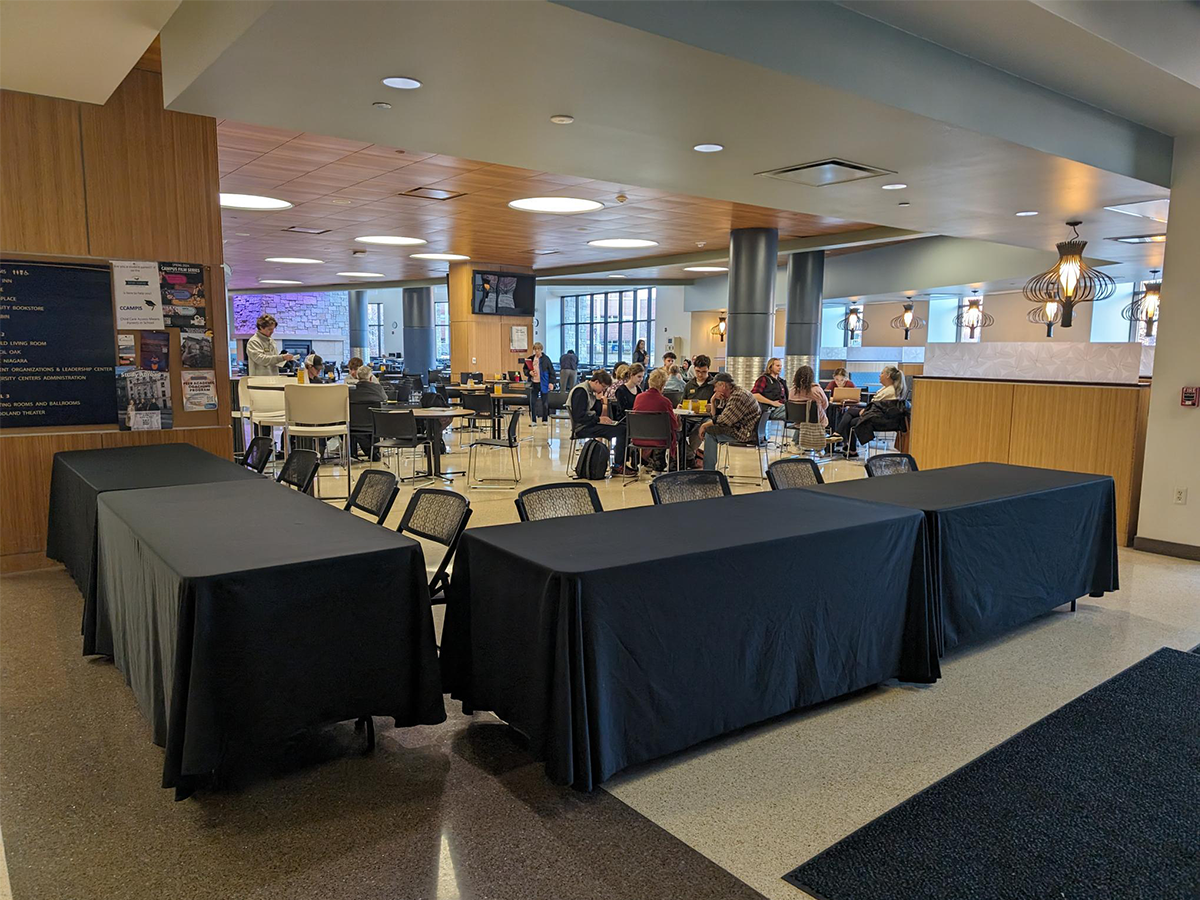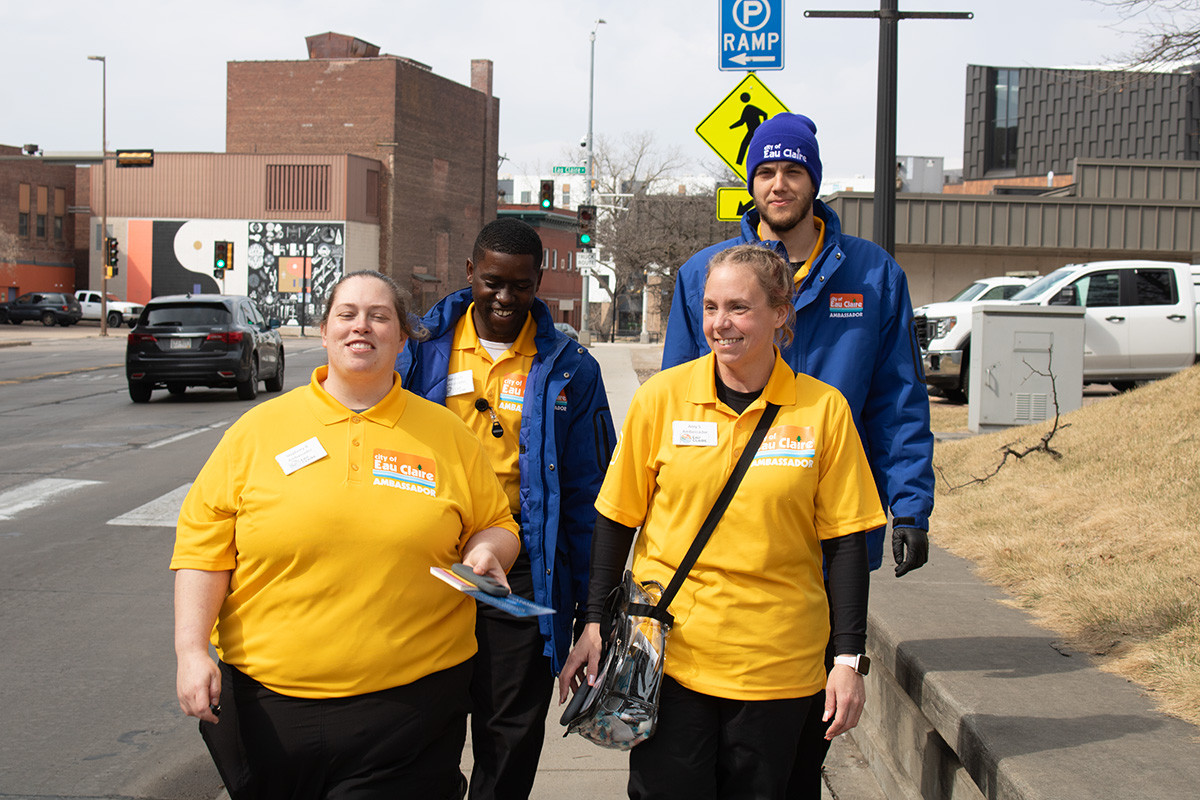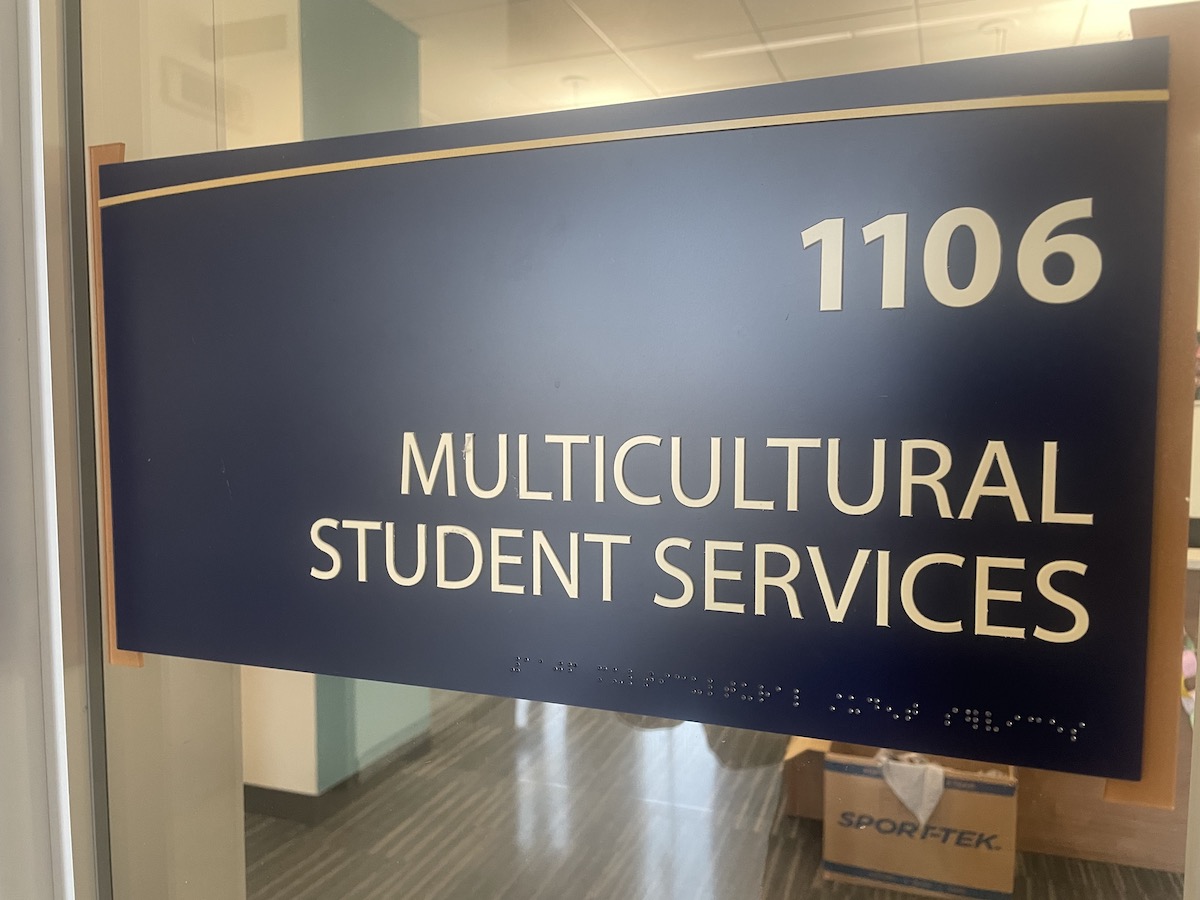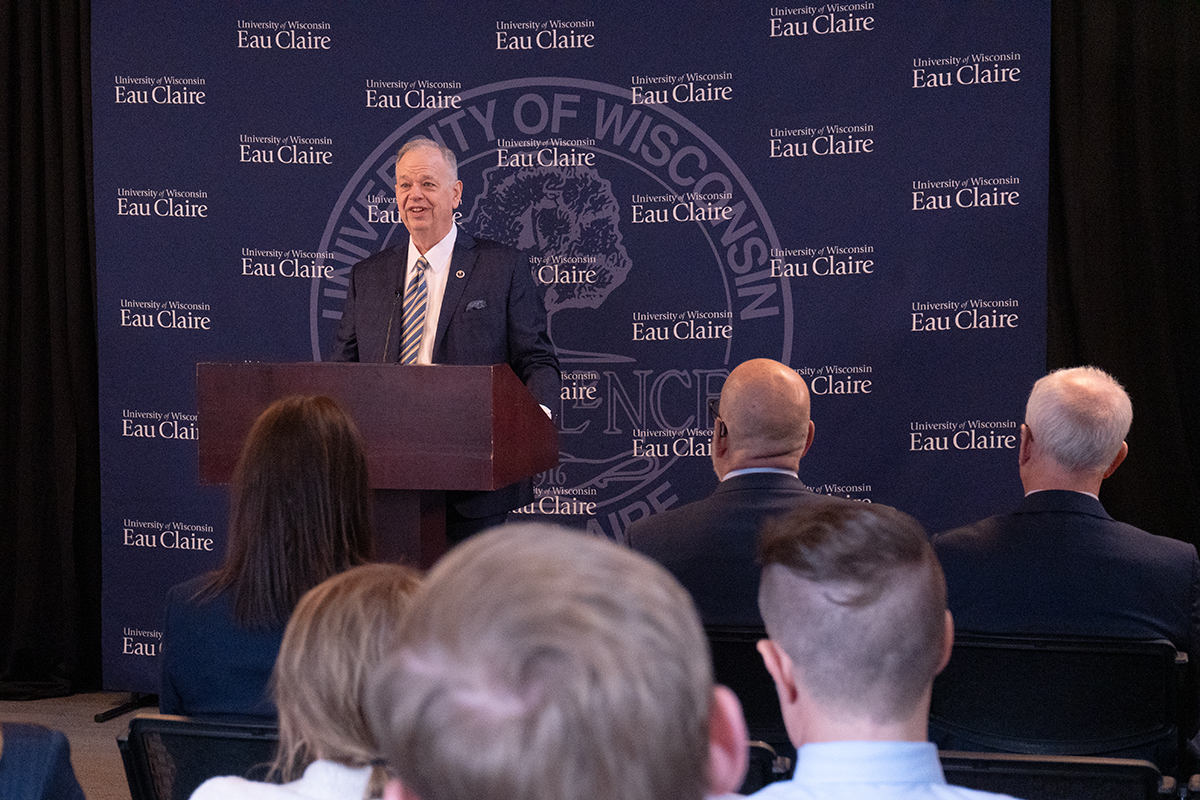For the past three tax seasons, Chip Kochendorfer, UW-Eau Claire accounting and finance professor, and student volunteers have assisted 70-100 individuals with basic tax returns. Their last session this year will take place from 5-8 p.m. on Friday, April 12 on the first floor of Davies Student Center.
The Volunteer Income Tax Assistance program (VITA) is a special program of the IRS and Wisconsin Department of Revenue according to their websites. Potential clients in the Eau Claire area need to visit the VITA website to schedule an appointment before interviewing with a volunteer.
“From the minute they enter Davies to the minute that we print their return and set up their refunds for direct deposit, we are one stop for everything,” Kochendorfer said, who’s taught at UW-Eau Claire for four years.
It had been years since the school had offered VITA when Kochendorfer first joined the department and he was approached by Ling Liu, the accounting and finance department chair, to look into “getting the wheels in motion.” Since reigniting the program, they’ve never “not been full” with clients.
“We cannot process if you’re self-employed [or] rent out multiple properties. We can’t touch that stuff, we’re not allowed to,” Kochendorfer said. “Other than that, for anyone who can find a spot, we have an acceptance.”
Kochendorfer compares the output to In-N-Out — a burger place found on the West Coast he discovered as a student at San Diego State University — meaning no matter where it’s located, VITA will “always be full.”
But he doesn’t run the program alone; every year volunteers create the “well-oiled machine” that attends to the clients. Kochendorfer said students who genuinely want to help the public or are seeking service learning credits have to pass a few government tests to get verified by the IRS.
“If they [volunteers] want to do advanced returns, they have to pass an advanced VITA test which is very hard,” Kochendorfer said. “If they want to do basic prep — which is 90% of our prep — they’ll take that.”
Though acknowledging the difficulty of these tests, Kochendorfer just wants to make sure he has the right people for the job because “a mistake in taxes is not easy to reverse.”
“One person will interview the client and will take notes about their situation in life and their tax situation and how it’s related to that,” Kochendorfer said. “Another person will then look at the source documents, which are the documents that the client has provided, and start keying in the return while the client is present. And a third person will review while it’s all being done.”
Kochendorfer has a lot of confidence in every volunteer he works with; even going as far as to say he’d have them do his own taxes. Despite positive turnout this year, the number of volunteers is inconsistent. A likely cause is a lack of awareness.
“Unless you’re in my tax class, I don’t know how you’d hear about it,” Kochendorfer said. “By nature of who I’m exposed to, it’s going to be mostly accounting majors.”
Andrew Mueller, a third-year accounting student, said he volunteered for the program to finish his service learning credits and get a head start in learning about taxes before taking those classes.
Although the program’s resurgence is still in its infancy, finding people to stay has proven difficult, partly due to the service learning credit incentive. Once the tax season is finished, students have their credits and unless “there to volunteer” have little incentive to return.
Possible incentives Kochendorfer hopes to convey include a recommendation letter for employers and a resume booster. In the future, he would like to see a possible VITA one-credit course students could take, which would allow prep time before the heat of tax season. But a main improvement for him is incorporating student leadership.
“I would like to take a student who is diligent and make them co-in charge,” Kochendorfer said. “They’d be the liaison and help me coordinate with other departments.”
The latter is crucial in the possible expansion of the program, which has been slow with the addition of 12 to 15 appointments each year.
“To be honest, our students can take advantage of this, not only volunteering but participating as a client,” Kochendorfer said. “So I’d like to get the word out universally.”
Questions about the program can be referred to acctfin@uwec.edu or 715-836-2184.
Heidtke can be reached at heidtkek7346@uwec.edu.








